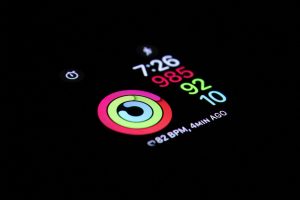Why Does Alcohol Make My Heart Race?
A spike in your heart rate is a normal and healthy response to certain activities like exercise. But if you’ve ever noticed your heart beating faster when you drink, you may have wondered: Does alcohol make your heart race?
In a 2015 study at Munich Oktoberfest, scientists measured the heart rate of more than 3,000 participants. Nearly 26 percent had a heart rate above the normal range of 60-100 beats per minute.
But since alcohol generally has relaxing effects, why would it increase your heart rate? Are some people more susceptible to this than others? And when should you be concerned?
Below, we’ll look at why your heart might race when you drink alcohol, and what you can do about it.
Why Does Your Heart Race When You Drink Alcohol?

How, exactly, does alcohol increase heart rate? And aren’t some types of alcohol supposed to be good for the heart?
It appears that small amounts of alcohol may have some positive effect on your circulatory system. But the more you drink, the more those effects are overshadowed by other factors that put extra stress on your heart.
A small, real-time study compared the effect of one vs two servings of alcohol in healthy volunteers. In the results, one drink appeared to dilate blood vessels, helping reduce how hard the heart had to work. But two drinks seemed to have the opposite effect, decreasing artery dilation while also increasing:
- Sympathetic nervous system activity (involved in the fight or flight response)
- The amount of blood pumping through the heart
In other words, the more people drank, the harder the heart had to work to overcome the effects of alcohol. This may also partially explain the abnormal heart rhythm some people experience connected with binge drinking, sometimes known as “holiday heart.”
Interestingly, despite red wine having a reputation for improving heart health, the study found no difference between this and other types of alcohol.
Are Some People More Sensitive Than Others?
It’s possible for anyone, including healthy adults, to experience an elevated heart rate when they drink. But certain people may be at higher risk than others.
Overall, women appear to be more sensitive to some of the harmful cardiac effects of alcohol than men. This might be explained by differences in absorption rates and metabolism.
Alcohol’s ability to increase heart rate is also dose-related. This means that the more you drink, the more likely it is you’ll put stress on your heart. Heavy drinking is also a major risk factor for other cardiovascular conditions such as stroke, hypertension, and heart disease.
If you have underlying heart conditions, this means your heart is already working to stay in balance. Avoiding or reducing alcohol use can help prevent more damage from alcohol’s toxic effects.
When You Should Be Concerned Or Seek Help
When your heart is beating too quickly, you may notice some mild discomfort, an irregular heart beat, and/or heart palpitations. These are not always cause for alarm, but more severe symptoms are possible. Seek medical attention if you experience:
- Chest pain
- Shortness of breath
- Fainting
Overall, while increased heart rate is common, it can also be an early warning sign of more serious problems. If you believe you’re at higher risk for heart attack or heart failure, it’s best to limit your consumption of alcohol.
How To Lower Your Heart Rate When Drinking
If you start to notice your heart is racing when you drink, it’s best to stop consuming alcohol and wait for it to leave your system. You should also avoid caffeine, as that will only add to the problem.
To help slow your heart rate down, you should try to place your body at rest. Try relaxation techniques like deep breathing. Get some fresh air outside, but make sure you don’t overexert yourself. And drink plenty of water to prevent dehydration—another known cause of a racing heart.
If you find that you’re generally struggling to control your alcohol use, and you’re concerned how it’s affecting your health, there are new, easier ways to get help. Ria Health offers support to cut back or quit drinking from home—through an app on your smartphone. Get in touch with a member of our team today to learn more.

Will insurance cover treatment? Verify Coverage
Have Questions? Call (800) 504-5360



